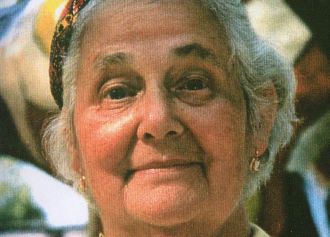
Companions: Tales from the Closet/ Väninnor - berättelser från garderoben 1996
Distributed by Cinema Guild, 1697 Broadway, Suite 506, NY, NY 10019-5904; 800-723-5522
Produced by LittleBig Productions, Artemis Produktion, in cooperation with SVT 1 Dokumentr, with support from Svenska Filminstitutet, RFSL, RFSL-Stockholm, Folkhälsoinstitutet , and Lesbian Now!
Directed by Nina Bergstrom and Cecilia Neant-Falk
VHS, color, 55 min.
College - Adult
Gay and Lesbian Studies
Date Entered: 11/09/2018
Reviewed by Ellen Greenblatt, Auraria Library, University of Colorado at DenverCompanions is a profoundly personal film which juxtaposes the life stories of five older lesbians against archival footage documenting the history of lesbianism in Sweden. The powerful opening sequence of the film shows photos from the 1930s and 40s underscored by the statement: "They didn't say homosexual in those days, they said pervert." Until 1944, homosexuality was a criminal offense in Sweden, punishable by up to two years hard labor. And until 1979, homosexuality was classified as a mental illness by social and medical authorities in Sweden.
This film, the first Swedish film to depict lesbianism in historical context, contradicts our stereotype of Sweden as sexually-permissive and tolerant. The five women profiled in this film came out in a hostile environment. They speak frankly about their past, relating vastly different accounts of their lives. Kerstin, a minister, lived an isolated existence with Agnes, her life partner of more than twenty years, afraid to invite people over to their house should their secret be discovered. Frieda, an artist, born in Vienna and raised in the Soviet Union, came to Sweden as an adult after World War II. She had many affairs with women, but didn't think of herself as a lesbian, just an "odd sort who loved women." Ellen was born in Germany, raised in Denmark during World War II, and came to Sweden at the age of nineteen. Three years earlier, she became involved with her childhood friend Ulla and the two maintained a relationship until Ulla's death almost 40 years later, despite the fact that Ellen was married to a man for twenty-seven of those years. Abbe was orphaned at an early age and worked as a farm laborer. She led a lonely and confused existence. Unable to accept her lesbianism and on the verge of committing suicide, she didn't have her first relationship until she was almost thirty-five. Boel became an upper class housewife at early age and came out through her activism in the feminist movement. The film ends on a happy note with Abbe and Ellen's "wedding ceremony." On January 5, 1995, Ellen and Abbe became the first women registered partners in Sweden, where partnership is considered legally the same as marriage except that homosexual partners lack the right to adopt.
Filmmakers Cecilia Neant-Falk and Nina Bergstrom decided to chronicle Swedish lesbian history through interviews with older lesbians, because so little information was otherwise available. Few documentary materials existed in archives. In fact, members of Sweden's oldest lesbian club, Diana (established in 1954), burned the club's membership lists and other documents, afraid that they might fall into the wrong hands. The filmmakers were finally able to connect with older lesbians by attending meetings of "Golden Ladies," a group for lesbians over forty, some of whom had been members of the earlier group, Diana.
A unique contribution to women's history in Sweden, Companions depicts lesbians as role models who are claiming their place in history. While the intent of this film compares favorably to Canada's Forbidden Love and the United States' Before Stonewall, the production values are not as polished. The interview segments are poorly edited, and shots are often fuzzy. Nonetheless, this documentary won two awards in 1997: Outstanding Documentary feature at the Los Angeles Gay and Lesbian Film Festival and the Riksförbundet för Sexuell Upplysning (National Union for Sexual Education) prize, better known as Sweden's "Sex-Oscar." In Swedish with English subtitles.